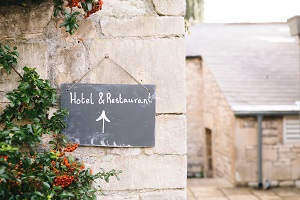6 November 2019
On 29 October EP Magazine hosted a conference in London in collaboration with Bird & Bird, HVS and EHMA on the future evolution of services within hotels. Throughout the day, 18 industry leaders and expert speakers discussed the future of hospitality in hotels and key challenges to the industry.
Hotels in the past have typically been associated with the provision of accommodation and food and beverage, with some larger ones expanding into events. However, with rapid technological advances and a greater choice of alternatives, such as AirBnB, hotels need to adapt to changing consumer demands.
Key issues discussed at the event
Hotel transactions within London have risen significantly this year despite Brexit uncertainty, with average room rates increasing. However, outside of London in the UK regions, there has been a general decline in occupancy levels due to a combination of an increase in the supply of hotels and fewer tourists across the UK.
In a survey earlier this year by guest experience management expert HGEM, nearly 50% of respondents considered hotel food to be unappealing with 35% also claiming that it is too expensive. Only 5% of guests based their hotel choice on its restaurant, and 67% of Millennials are more likely to book hotels that allow food to be delivered to them. There is clearly more that hotels can do to raise their game on foodservice – could the ‘delivered-in’ food model actually replace hotel room service in the future?
On the back of increased deliveries, certain hotels can take advantage of this growing market trend by collaborating with ‘dark kitchens’ (workspaces allowing restaurants to meet demand for app deliveries) rather than offering one in-house restaurant with a limited menu. Embracing this change is one way hotels can adapt in order to attract and retain guests. They must also consider the increasing demands for vegetarian, vegan, and other dietary specific requirements, and the general desire for having a large variety of food types from which to order. The days of having a separate menu for vegetarians is surely numbered!
Further developments in the industry have seen improvements to on-site amenities in an effort to maximise earnings. For example, it has become more common for hotels to offer a full range of luxurious wellness services rather than offering generic gym and spa facilities, reinforcing the notion that quality and choice are key drivers for consumer demand. Moreover, multi-use lobbies allow hotels to offer flexible communal working spaces, another example of how hotels have focused on providing a holistic service to their clients, whilst at the same time enhancing profitability.
The hospitality sector is an increasingly regulated area, with legal and commercial risks, food, hygiene, health and safety, advertising regulations, consumer laws and much more to consider. The costs behind these rules and regulations make it difficult for new hotels to start in this industry and potentially problematic for those already in the market to meet these demands if it calls for constant restructuring to the business. However, this may be advantageous to existing hoteliers as an additional barrier to entry potentially reduces new market entrants.
The future of hotels is evolving rapidly, particularly through the use of more advanced technology. Virgin Hotels, for example, has begun to use a virtual assistant that can oversee all aspects of the visit for the guests, such as concierge services. Despite the changes listed above, at the centre of it all, hospitality will continue to have the same overall objective - excellent service for customers.
If you have any queries or would like to discuss this topic further, please contact your local UHY adviser.
For more information on the services we provide to the hospitality sector, read our full service brochure here.


